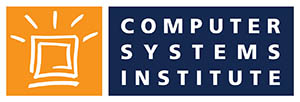Higher education has long been regarded as the path to professional success. But the routes available for students to acquire new skills have diversified significantly in recent decades. While traditional degrees once dominated the landscape, certification programs are gaining prominence in the current labor market. This shift reflects changing workforce demands and the need for faster, more flexible educational options.
Compare certification programs versus degrees in today’s market to see how certifications can be a strong alternative for achieving your career goals.
Cost Comparison
One of the biggest differences between certification programs and degrees is the cost. Traditional degree programs, whether at the undergraduate or graduate level, often bring significant expenses.
Tuition for Traditional Degrees
Tuition for a four-year public university in the US can cost tens of thousands of dollars annually. Private universities can easily cost three times as much per year. These figures usually don’t include additional fees for books, living expenses, or other learning materials, making degrees a heavy financial investment.
Affordability of Certification Programs
Certification programs are generally more affordable. The cost of coding boot camps, IT certifications, or healthcare-specific programs often range from a few hundred to several thousand dollars, depending on the educational institution and the length of the program.
Certifications typically require less time to complete, which further reduces tertiary costs for housing or income lost while in school. Many professionals find the economic nature of certifications particularly appealing when compared to the long-term debt associated with degrees.
Duration
Traditional degree programs usually require four years of dedicated study for a bachelor’s degree and two additional years for a graduate degree. This timeline doesn’t suit everyone, particularly individuals looking to pivot careers, reenter the workforce, or upskill while holding down a full-time job.
Certification programs, however, are designed for efficiency. Students matriculating in the career training programs offered by Computer Systems Institute, for example, can complete their studies in 40 academic weeks. The shorter timeframe allows participants to quickly enter or reenter the job market with relevant skills that employers value.
Accessibility and Flexibility

The affordability and efficiency of certification programs make them more accessible than traditional degrees. With flexible course formats and times, they accommodate diverse schedules and commitments. For working professionals or parents, certification programs provide a practical way to acquire new skills without quitting jobs or uprooting lives.
Additionally, certifications allow individuals to complete multiple modules that build toward a larger professional qualification. This piecemeal approach makes it easier to balance learning with time constraints. Degrees, by comparison, require full-time dedication over several years, limiting their feasibility for many students.
Specialized Skill Development
Degrees often provide broad, foundational knowledge over several years. While this offers depth in a subject area, a narrowly tailored skillset is often more valuable for some industries.
A big difference between certification programs versus degrees in today’s market is that they focus on specific competencies. For example, an individual interested in cybersecurity doesn’t need a four-year computer science degree to start their career. Instead, certifications such as Comp TIA Network+ prepare candidates for specialized roles in a fraction of the time.
This targeted approach serves the tech, health care, and project management industries well, since companies in these sectors prioritize demonstrated abilities over lengthy coursework. Furthermore, certifications often require recertification or ongoing education, ensuring candidates stay updated with trends in their field. Degrees, while comprehensive, lack this built-in mechanism for continuous skill validation, which is increasingly important in today’s technology-driven workplace.
Professional Mobility
Certification programs offer a unique advantage for professionals who aim for career mobility or a complete pivot. Transitioning to a new industry with a degree often means going back to school for another expensive, multiyear program.
However, short-term certifications enable rapid transitions. For example, a professional with a background in finance might pursue certification in data analytics or project management to branch into new roles without a complete career reset.
Stackable certifications also allow individuals to diversify their skillsets in a way degrees typically don’t. An employee in digital marketing could add email marketing certifications or social media-specific knowledge to widen their role while advancing within their company. This flexibility makes certifications particularly useful for staying competitive in a diverse job market.
Industry Recognition
Another advantage is that certifications often involve training from respected industry organizations, which lends trustworthiness to the credentials. For example, certifications issued by Microsoft or CompTIA reflect direct expertise with specific products and systems.
Furthermore, certifications are more transparent. They signal specific expertise in an area directly tied to job functions, whereas degrees may not always map directly onto real-world requirements. This shift aligns with the modern workforce’s emphasis on adaptability and hands-on ability over academic prestige.
Alumni and Networking Opportunities

One area where degrees have traditionally excelled is the network opportunities they offer. Many universities maintain robust alumni networks, providing graduates with a strong support system for mentorship, networking, and job placement. This remains a valuable benefit of degree-level education.
Certification programs can also help students in this area. Many educational institutions now help students find networking platforms, forums, and industry-specific meetups to connect certification holders. While certification networks are still developing in some industries, their rapid expansion is creating new avenues for learners to connect with like-minded professionals.
How To Find the Right Path for You
The decision between certification programs and degrees is a nuanced choice shaped by individual priorities, personal circumstances, professional fields, and long-term goals. Understanding the distinct benefits of each route can help individuals make choices that align with the job market’s demands as well as their own aspirations.
For those seeking wider foundational knowledge, degrees remain an indispensable asset. However, certification programs can equally contribute to long-term career growth and positions in fields requiring specialized knowledge. Plus, they help keep professionals agile and equipped to tackle emerging trends in their fields in the long run.
Today’s workforce rewards continuous learning and the ability to pivot toward new opportunities. By carefully evaluating factors such as time, cost, and career relevance, individuals can create an educational road map that allows them to achieve their goals and lay the groundwork for ongoing success.







